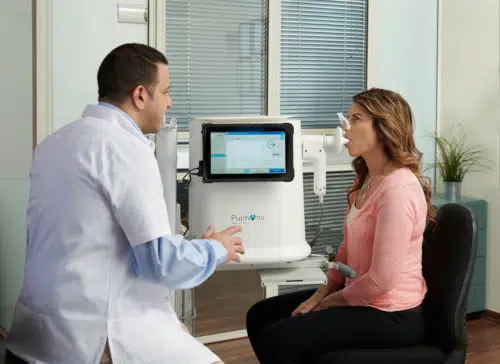
Allergy Shots
Allergy shots are administered on a regular basis exposing the body to a little amount of an allergen to establish immunity.
learn moreSchedule An Appointment With Our New Online Booking System! Schedule an Appointment Online
Allergy & Asthma Care has Board-Certified Allergists and Immunologists that were named Top Doctors in Cincinnati in 2022 and for many years running. With six convenient Tristate locations, this makes finding an allergist near you easy.
Request an appointment to get relief from allergies and asthma – and get back to living!
513-671-6707
Schedule an appointment and get allergy & asthma relief!

Looking for a local asthma or allergy specialist near you? Our board-certified doctors in Cincinnati, Ohio and Richmond, Indiana understand unique allergy and asthma issues affecting those in the Tristate area. Call us today to schedule an appointment and start feeling your best!

Allergy Shots
Allergy shots are administered on a regular basis exposing the body to a little amount of an allergen to establish immunity.
learn more
Biologics for Asthma
These are new, highly effective, medicines that help prevent moderate-to-severe asthma given once or twice a month.
learn more
Pulmonary Function Tests
These tests help your provider diagnose and monitor asthma symptoms by measuring your overall lung health.
learn more
Food Allergy Treatment
Find freedom from the fear of food allergies with specialized food allergy treatment options.
learn more
Immunotherapy
Immunotherapy is an ideal choice for patients with severe allergies or those unable to avoid exposure to an allergen.
learn more
Blood Testing for Allergies
Blood tests can tell if someone has allergies by finding antibodies in the blood that react to allergens.
learn more
Skin Allergy Testing
This is less invasive than blood tests and is a good alternative for patients who don’t like needles.
learn more
Food Allergy Testing
A challenge test is a highly accurate diagnostic test to determine if a patient has outgrown a food allergy.
learn moreOur team of experienced allergists and immunologists will work with you to create a personalized treatment plan that suits your needs and goals. Contact us today to schedule an appointment and start your journey to better health.
If you’ve lived in Cincinnati or Richmond for a while, there’s a good chance you’ve experienced allergies. For those who do suffer from allergies, hay fever, or asthma, you need a Cincinnati allergist who cares about your long-term well-being — not just a quick fix.
In short, there’s no need to suffer. With multiple locations in Greater Cincinnati, our allergists specialize in adult and pediatric allergies and asthma. Our friendly and experienced staff is committed to giving you consistent, quality care.
Medicine is always changing, but one thing remains the same: How much our allergy doctors care about their patients. We believe in providing the best care possible in a warm, welcoming environment. Our board-certified allergists stay on the cutting edge of new ways to heal patients like you. Plus, our medical staff members and office teams do whatever it takes to make your experience as positive and stress-free as possible.
We are dedicated to improving quality of life, helping each patient that walks through their doors get back to enjoying the activities that make them happy — without worrying about allergies standing in their way.
Schedule an Appointment